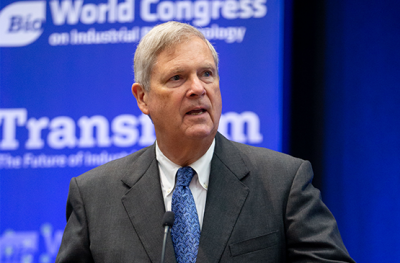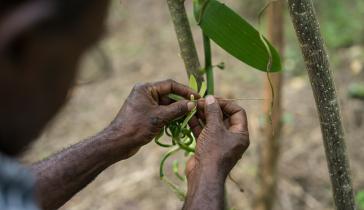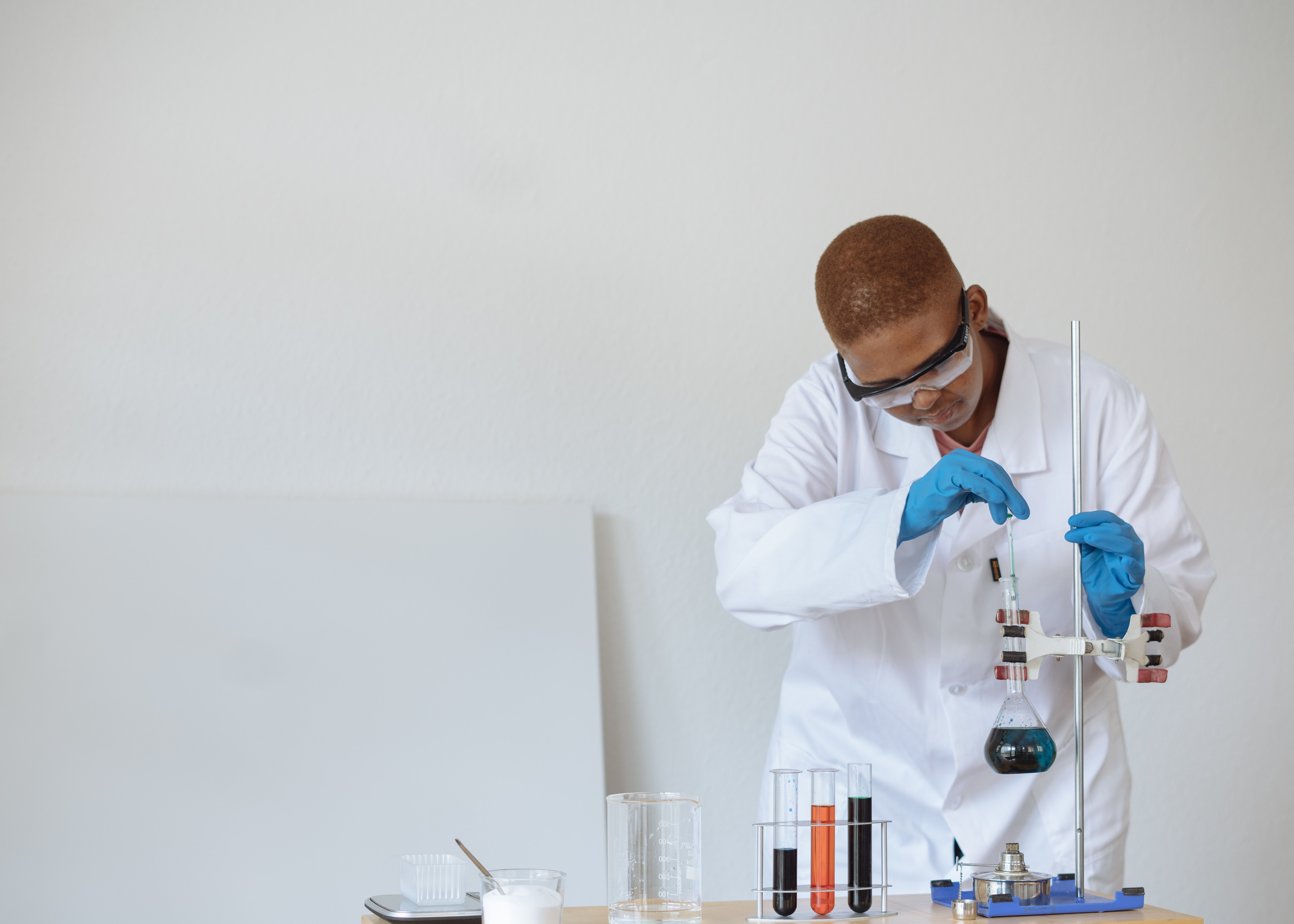A zoonotic disease has killed 500,000 Americans and closed countless businesses and eliminated millions of jobs. Climate change is causing increasingly volatile, and devastating weather events and likely contributed to the cold snap that battered Texas. If we don’t act, this is just the tip of the quickly melting iceberg.
But we have the tools to counter the effects of climate change, prevent the next pandemic, and build resiliency. Thanks to biotechnology, we have solutions for reducing GHG emissions, eliminating plastic waste, making food more sustainable and nutritious, and creating jobs.
This is biotechnology’s moment—but to seize it, we need effective collaboration with policymakers, and specifically, policies that accelerate biotechnology.
Here’s what BIO’s doing to get there.
Climate Change
In Washington, D.C., 2021 is looking like a year for renewed climate action. On Day 1 of the Biden administration, the United States rejoined the Paris Climate Accords, one of BIO’s recommendations for the administration’s first 100 days. The administration issued sweeping executive orders on climate, including one optimizing federal programs to encourage the adoption of climate-smart ag practices to reduce carbon and create new sources of income and jobs for rural Americans. (BIO pledged to work with the administration on climate goals.)
Meanwhile, the new Congress is putting a focus on climate right out of the gate, holding hearings on restoring federal climate leadership and the role of U.S. agriculture and forestry in tackling climate change.
If we want to tackle climate change, biotechnology must play a central role—but how?
Last year’s House Select Committee on the Climate Crisis report, “Solving the Climate Crisis: The Congressional Action Plan for a Clean Energy Economy and a Healthy, Resilient, and Just America,” made numerous recommendations—from accelerating the use of zero-carbon energy sources, to reducing GHG emissions, to promoting sustainable farming and sustainable chemistry. (Incidentally, many of these recommendations were similar to what BIO recommended in comments to the committee in 2019.)
“To meet climate change commitments, it is crucial to lead with science and U.S. innovation,” BIO said in a statement submitted for the recent House Energy & Commerce Committee hearing. “We must incentivize the adoption of innovative and sustainable technologies and practices and streamline and expedite regulatory pathways for breakthrough technology solutions”—from sustainable biofuels, which are lower in carbon than fossil fuels, to farming techniques like carbon capture, to gene editing, which can make our food resistant to pests, disease, and weather.
A good first step: passing the Growing Climate Solutions Act, which would create a voluntary, producer-led certification program at the U.S. Department of Agriculture (USDA) to incentivize carbon capture and provide farmers with technical resources to participate in the markets.
Agricultural Innovation
At the heart of developing effective policy solutions to these challenges is the U.S. Department of Agriculture (USDA). BIO has long worked with USDA to promote innovation and biotech.
During the Trump administration, BIO weighed in as the agency developed its Agriculture Innovation Agenda, stressing the importance of bolstering the bioeconomy through the development of new platform technologies, enhancements in agriculture and food production, and increased production of sustainable fuels, renewable chemicals, and biobased products.
BIO looks forward to continuing to work with the agency, led by newly confirmed Secretary Tom Vilsack. As he said during his confirmation hearing, USDA won’t be able to reach its goals “without innovation. We won't be able to do it without precision agriculture. We won't be able to do it without a technology that converts agricultural waste into a variety of products.”
Needless to say, BIO agrees. As we said ahead of a recent House Agriculture Committee hearing, Climate Change and the U.S. Agriculture and Forestry Sectors, it’s crucial to lead on climate with science and U.S. innovation—and this includes investment and deployment of cutting-edge technologies and legislative action that catalyzes resilient and sustainable biobased economies. (Here’s a full list of more ways we can lead with innovation.)
Animal Biotechnology
Around 75% of emerging infectious diseases are zoonotic in origin—including SARS-CoV-2, which likely originated in a bat. Meanwhile, we saw numerous headlines over the past year about outbreaks of African swine fever, which kills both the pigs and economic opportunities for farmers. How humans interact with the environment plays a direct role in the emergence of these diseases, which are often linked to wildlife trade, wet markets, and state fairs.
The pandemic has shined a light on the urgency of protecting public health and improving the wellbeing of people, animals, and the environment—also known as One Health. Now, we need innovative, sustainable solutions throughout the agricultural value chain—such as gene editing, which can help us save pigs and other animals. But at the same time, we need a modernized system to regulate those solutions.
“It’s essential for the U.S. Government’s oversight of animal biotechnology to be science-based and focused on the health and safety of animals, consumers, and the environment,” said Dana O’Brien, BIO’s new chief sustainability officer, last year.
“A modern U.S. regulatory system will pave the way for breakthroughs that can help prevent and respond to zoonotic diseases such as COVID-19, improve animal well-being, address hunger and nutrition, make our farming and food systems more sustainable, protect our environment, and bolster our resilience to climate change,” he continued.
Breakthroughs in animal biotechnology, such as disease resistance, will bolster a One Health approach and help us better prepare for future infectious disease outbreaks—one of six priorities outlined in BIO’s “100 Days of Innovation” Blueprint unveiled in January.
“Science—and scientific solutions—are the way out of this pandemic and developing solutions for climate change,” said BIO President and CEO Dr. Michelle McMurry-Heath.
Now, we need policy to help science seize the moment.






.jpg?itok=5epg0qxZ)


.jpeg)












.png)


